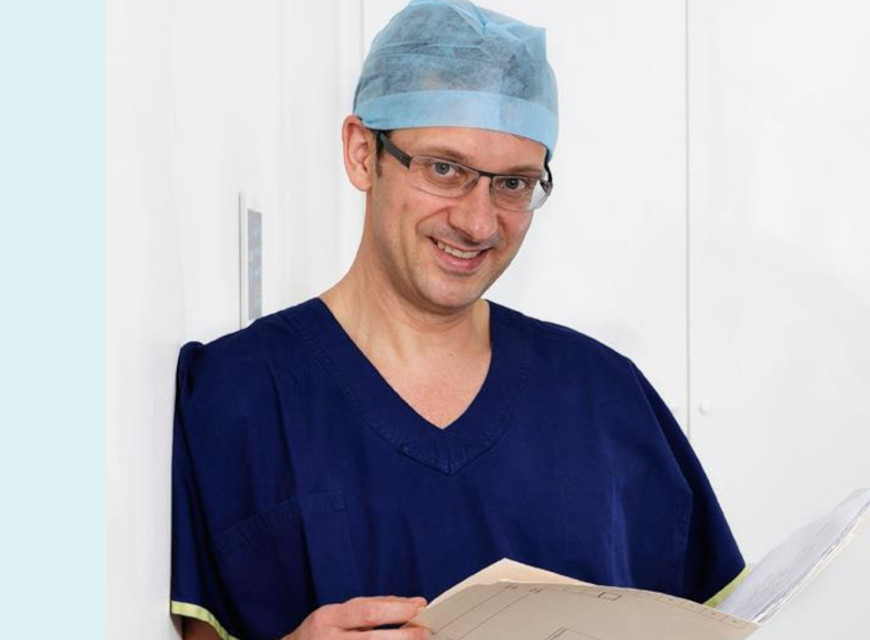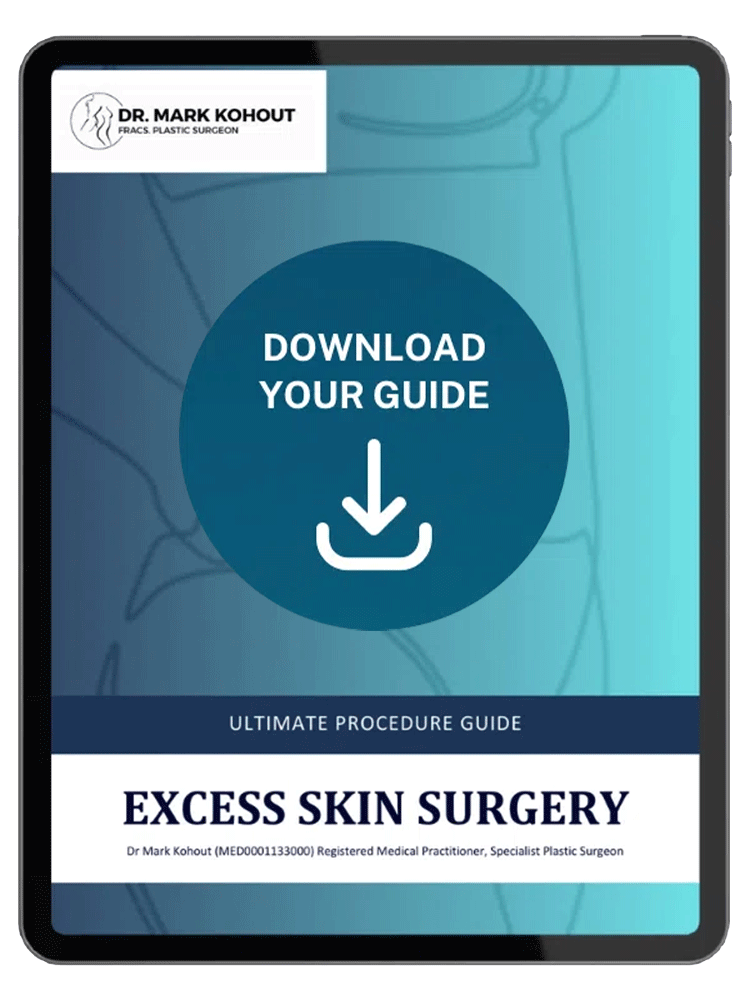
How Weight-Loss Medications Are Shaping Plastic Surgery Demand
Over the past few years, there has been a sharp rise in the number of Australians using newer prescription weight-loss medications to support significant weight reduction. These drugs have been effective in helping people lose a significant amount of weight in a relatively short time. While this can bring major health benefits, rapid weight loss often comes with an unexpected challenge: skin that does not contract back after the weight is gone.
As a result, more people are now considering plastic surgery to address the physical changes that medications alone cannot fix. For many, this is about restoring comfort, improving function in everyday life.
Why loose skin is common after medication-related weight loss
When weight is lost gradually over time, skin sometimes has a better chance of adapting to the new body shape. However, when the change is sudden, the skin’s elasticity may not keep up. This can leave folds of skin on the abdomen, arms, breasts, thighs, and even the face and neck. These folds can cause:
Difficulty with clothing and personal hygiene
Skin irritation, rashes, or infections in the creases
Self-consciousness about body contour
This is where plastic surgery becomes relevant. Surgery does not replace the benefits of medication, but it can address the side effects of skin laxity that medications alone cannot resolve.
Procedures commonly sought after significant weight loss
Dr Mark Kohout is a FRACS-qualified Specialist Plastic Surgeon in Sydney with extensive training in body contouring procedures. After major weight loss, patients often ask about the following surgeries:
Abdominoplasty (Tummy Tuck)
Abdominoplasty is one of the most frequently requested operations following weight-loss medication use. It removes excess skin from the abdomen, tightens weakened muscles, and can significantly improve comfort and abdominal contour.
Fleur-de-Lis Abdominoplasty
For people who have lost a very large amount of weight, the Fleur-de-Lis abdominoplasty may be recommended. This technique removes skin both horizontally and vertically, allowing for greater reshaping when standard abdominoplasty is not enough.
Breast Surgery
After rapid weight loss, the breasts often lose volume and firmness. Procedures such as breast lift (mastopexy) or breast reduction can help restore shape and relieve physical discomfort caused by sagging tissue. Some patients may also consider augmentation with implants in combination with a lift.
Arm Lift (Brachioplasty)
Loose skin on the upper arms can be both physically uncomfortable and difficult to hide in clothing. An arm lift removes excess skin and recontours the arms.
Thigh Lift
Skin folds on the inner thighs are another common concern. A thigh lift can address this by removing excess skin and reshaping the thighs for improved mobility and comfort.
For patients who prefer less invasive approaches or wish to enhance their surgical results, radiofrequency-assisted treatments like BodyTite may also be considered. Learn more about BodyTite versus excisional surgery after weight loss medications to see how each option addresses post-weight-loss skin laxity.
Face and Neck Procedures
When weight is lost quickly, it can also affect facial structure. Procedures such as facelift or neck lift may be considered to restore definition and address loose skin in the lower face and neck.
The role of FRACS qualification in safe surgery
It is important to understand the difference between a Specialist Plastic Surgeon and providers who are not formally trained in specialist surgery. Dr Mark Kohout holds FRACS (Plast), which means he has completed years of accredited training in plastic, reconstructive, and cosmetic surgery. For patients considering procedures after weight loss, choosing a FRACS-qualified surgeon helps ensure that surgery is performed in accredited hospitals with proper standards of safety and care.
Emotional and functional benefits
Patients often report that excess skin is more than just a cosmetic issue. It can affect daily living, movement, and mental wellbeing. Being able to wear clothes comfortably, exercise with less restriction, and feel less self-conscious can have a meaningful impact on quality of life.
Plastic surgery in this context is not about reversing the weight loss but complementing it, helping people feel more at ease in their new body.
What to consider before surgery
Before deciding to undergo any procedure, several factors should be weighed carefully:
Weight stability: It is generally best to wait until weight has plateaued for at least six months before surgery.
Overall health: Pre-existing conditions and nutritional status can influence recovery.
Recovery time: Procedures such as abdominoplasty or thigh lift may require several weeks of downtime.
Realistic expectations: Surgery can improve contour but will leave scars. Understanding the likely results is important.
Financing options: In some cases, procedures may be eligible for partial support through Medicare or private health insurance if they meet strict medical criteria. Early access to superannuation on compassionate grounds may also be possible. Patients should seek financial and medical advice before making decisions.
A growing trend in Australia
The increase in demand for plastic surgery after weight-loss medications is a growing trend across Australia. More people are finding themselves healthier after losing weight but facing the challenge of excess skin. For these patients, surgical options performed by a Specialist Plastic Surgeon can be an important next step.
What next
Weight-loss medications have created a new pathway for Australians to manage obesity and related health conditions. While they can be effective, they often leave behind physical changes that medication cannot correct. Plastic surgery procedures such as abdominoplasty, breast surgery, arm and thigh lifts, and face or neck surgery may help restore comfort and improve body contour after major weight loss.
If you are considering surgery, it is essential to consult a FRACS-qualified Specialist Plastic Surgeon and discuss your options, risks, and expectations in detail.
All surgical or invasive procedures carry risks. Before proceeding, you should seek a second opinion from an appropriately qualified health practitioner.
Related Blog Posts
BodyTite: A Solution for Skin Laxity…
Have you ever considered liposuction, but worried about the potential for loose or sagging skin afterwards? Many patients express this concern, especially those who are a bit older, have gone through…
FAQs about Abdominoplasty (Tummy Tuck Surgery)…
Abdominoplasty, commonly referred to as a tummy tuck, is a surgical procedure to remove excess skin and fat from the abdomen and tighten the underlying muscles. When combined with BodyTite and Morpheus8, you can…
Recovery After Liposuction: What to Expect…
Liposuction is a popular cosmetic procedure aimed at removing excess fat deposits from specific areas of the body. While it’s a relatively safe surgery, the recovery process plays a crucial role…

Experienced Plastic Surgeon
Dr. Mark Kohout
A qualified plastic surgeon who operates with care and integrity, based in central Sydney with over 20 years of experience in the cosmetic field. His extensive training and experience assures patients they are in highly trained surgical hands. Dr. Kohout is a dedicated, friendly professional who is committed to providing the high quality care, support and results, alongside his compassionate team.
Dr Mark Kohout (MED0001133000)
Specialist Plastic Surgeon
Specialist registration in Surgery – Plastic Surgery






